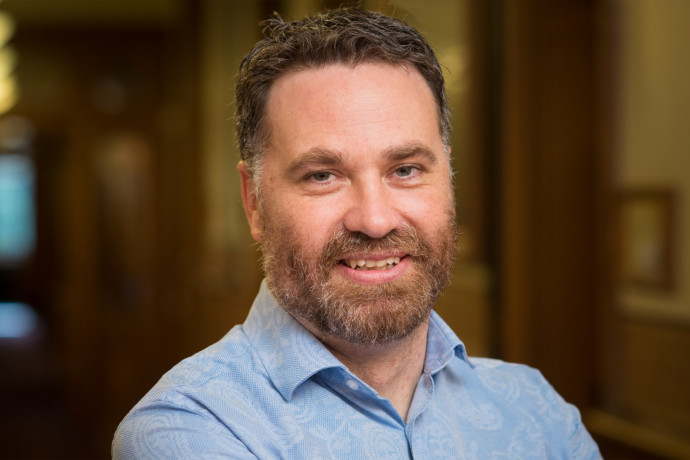News
Published 17 October 20182018 Early Career Research Excellence Award for Humanities: How Indigenous legal traditions shape the law

Dr Carwyn Jones has received the Royal Society Te Apārangi Early Career Research Excellence Award for Humanities for his award-winning book New Treaty, New Tradition.
Dr Jones (Ngāti Kahungunu) is a multidisciplinary legal scholar based at Victoria University of Wellington. His highly original work, New Treaty, New Tradition: Reconciling New Zealand and Māori Law, was published in 2016 by UBC Press (Canada) and Victoria University Press (New Zealand).
In New Treaty, New Tradition, Carwyn examines how resolution of historical claims between Indigenous peoples and states continue to shape how law is understood in society. It specifically considers the place of Māori legal traditions in the process for the settlement of historical Treaty of Waitangi claims. As Indigenous self-determination plays out on the world stage, this unique and nuanced reflection brings into focus prospects for the long-term success of reconciliation, not only in Aotearoa, but around the globe.
A compelling aspect of the book is that each chapter begins with a dialogue between a Māori father and his son. The father explains various aspects of Māori history, values, and traditions by telling his son stories. This format provides the reader with a personal, living introduction to Māori legal traditions, and creates an atmosphere for the academic content of each chapter. It demonstrates the continuity between Māori history and contemporary Māori life, and brings home the dynamic vitality of Māori legal traditions in Aotearoa today.
New Treaty, New Tradition won the Law and Society Association of Australia and New Zealand Book Prize and the Early Career Research Award in 2017 for being the most outstanding contribution to the field of law and society by an Australian or New Zealand scholar. It also won the Non-Fiction Politics category at the 2017 Ngā Kupu Ora Aotearoa Māori book awards, described by the judges as one of the most important books written on Treaty of Waitangi policy and Māori law in the last thirty years.
Carwyn's research is grounded in significant practical experience, having worked at the Waitangi Tribunal, Māori Land Court, Office of Treaty Settlements, and for his own iwi.
Strengthening translational Māori legal research is a strong priority for Carwyn. In addition to his publications, he is co-editor of the Māori Law Review (the only publication dedicated to reporting on Māori Land Court decisions, Waitangi Tribunal reports and other legal issues affecting Māori).
On presenting this award, the selection committee said Carwyn's innovative legal research in the humanities demonstrates a unique depth of critical thinking about the Treaty of Waitangi claims and settlement process, drawing on connected fields of history, transitional justice, Māori governance and politics, and constitutional law. “His book, New Treaty, New Tradition, is ground-breaking in format and context, revealing a powerful new way of using Indigenous knowledge to understand how law shapes society.”
On receiving this award, Carwyn said: “I'm really thrilled to receive this award and I see it as a recognition of the value of matauranga Māori and Māori perspectives in research”.
Carwyn completed his PhD in 2013 and he has won a number of research-related awards from Victoria University of Wellington, including the Toihuarewa Indigenous Fellowship 2015, Staff Excellence Award for Engagement 2016, and Treaty of Waitangi Fellowship 2016. In 2014 he was awarded a Marsden Fund Fast-Start grant for research to identify Māori legal traditions from traditional stories.
Royal Society Te Apārangi Early Career Research Excellence Award for Humanities:
For emerging researchers in humanities research in New Zealand.
Citation:
To Carwyn Hamlyn Jones for his ground-breaking book, New Treaty, New Tradition, which reveals new ways of using Indigenous knowledge to understand how law shapes society.
